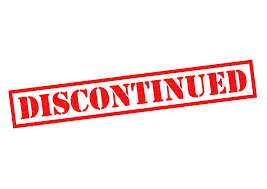Ella Fitzgerald at Carnegie Hall
Ella Fitzgerald at Carnegie Hall
Ella Fitzgerald with the Chick Webb band on disc 1
Ella Fitzgerald with the Tommy Flanagan Quartet : Tommy Flanagan (piano), Keeter Betts (bass), Jimmie Smith (drums), Joe Pass (guitar) on disc 2
Columbia 32557
Speakers Corner Records : 2 LPs 180 gram
Brand New and Sealed Record
Discontinued : last copy available!...
Ella Fitzgerald with the Chick Webb band :
A1 - I've Gotta Be Me
A2 - Good Morning Heartache
A3 - Miss Otis Regrets
A4 - Medley : Don't Worry 'Bout Me, These Foolish Things
A5 - Any Old Blues
B1 - A-Tisket A-Tasket
B2 - Indian Summer
B3 - Smooth Sailing
B4 - You Turned The Tables On Me
B5 - Nice Work If You Can Get It
B6 - I've Got A Crush On You
Ella Fitzgerald with the Tommy Flanagan Quartet :
C1 - Medley : I Can't Get Started ,The Young Man With The Horn ,'Round Midnight
C2 - Star Dust
C3 - C Jam Blues
D1 - Medley : Taking A Chance Of Love, I'm In The Mood Of Love
D2 - Lemon Drop
D3 - Some Of These Days
D4 - People
Recorded on July 5, 1973 at Carnegie Hall, New York City.
This was a historic night for Fitzgerald, reuniting her with many members that had worked with her when she performed with the drummer and Bandleader Chick Webb in the mid-1930s. Fitzgerald is also reunited with the pianist Ellis Larkins, who accompanied on her 1950 album Ella Sings Gershwin. The second half of the record sees Fitzgerald perform a typical set from this stage in her career.
The celebrated "First Lady of Song" was born on April 25, 1917 in Newport News, Virginia. She got her big break at the age of 17, winning an amateur talent show at the Apollo Theater in Harlem. Jazz saxophonist Benny Carter, who happened to be in the audience at the Apollo that evening of November 21, 1934, later brought Ella to the attention of drummer-bandleader Chick Webb, who hired her as the female singer for his popular orchestra, a mainstay at the Savoy Ballroom. She started out sharing vocal duties with Taft Jordan and Louis Jordan before becoming the featured singer with the band. In 1936, the Chick Webb Orchestra scored hits with Fitzgerald on "Sing Me a Swing Song" and "You'll Have to Swing It (Mr. Paganini)." But it was the catchy 1938 ditty, "A-Tisket A-Tasket," that made Ella a household name. Following Webb's death in June, 1939, she took over the band at age 22, renaming it Ella Fitzgerald and Her Famous Orchestra. She remained its leader for two years before signing as a solo artist in late 1941 with Decca Records.
By 1945, Fitzgerald began to demonstrate a freer, more mature sense of phrasing while alluding to the remarkably agile Louis Armstrong-influenced scat prowess that would become her trademark. Beginning in 1948, the year she married jazz bassist Ray Brown, Ella became a favorite on Norman Granz's Jazz at the Philharmonic concert tours, unleashing her formidable scatting chops in the company of such jazz stars as Dizzy Gillespie, Flip Phillips, Roy Eldridge, Herb Ellis and Oscar Peterson. During this period, she scored a hit with her scat-laden version of "Lady Be Good," which would become her trademark tune throughout her career. Fitzgerald's profile rose in the 1950s through a series of popular Songbook recordings for Verve dedicated to the works of Duke Ellington, Cole Porter, Jerome Kern, Irving Berlin, Johnny Mercer, Harold Arlen and George and Ira Gershwin.
In 1960, she scored another hit with her swinging, upbeat reading of Kurt Weill's "Mack the Knife." After bouncing between several different labels through the decade, she emerged in the '70s on Norman Granz's Pablo label with a series of classy small group recordings featuring Joe Pass, Oscar Peterson and Count Basie. Fitzgerald fell into ill health in the 1980s and was admitted into intensive care for heart trouble in 1986, but then made a comeback in 1990, performing in a London concert with the Count Basie Orchestra. By 1994, she was in retirement, confined to a wheelchair. She died two years later on June 14, 1996.
This Speakers Corner LP was remastered using pure analogue components only, from the original analogue studio tapes through to the cutting head, and was pressed with virgin vinyl at Pallas. More information under http://www.pure-analogue.com



